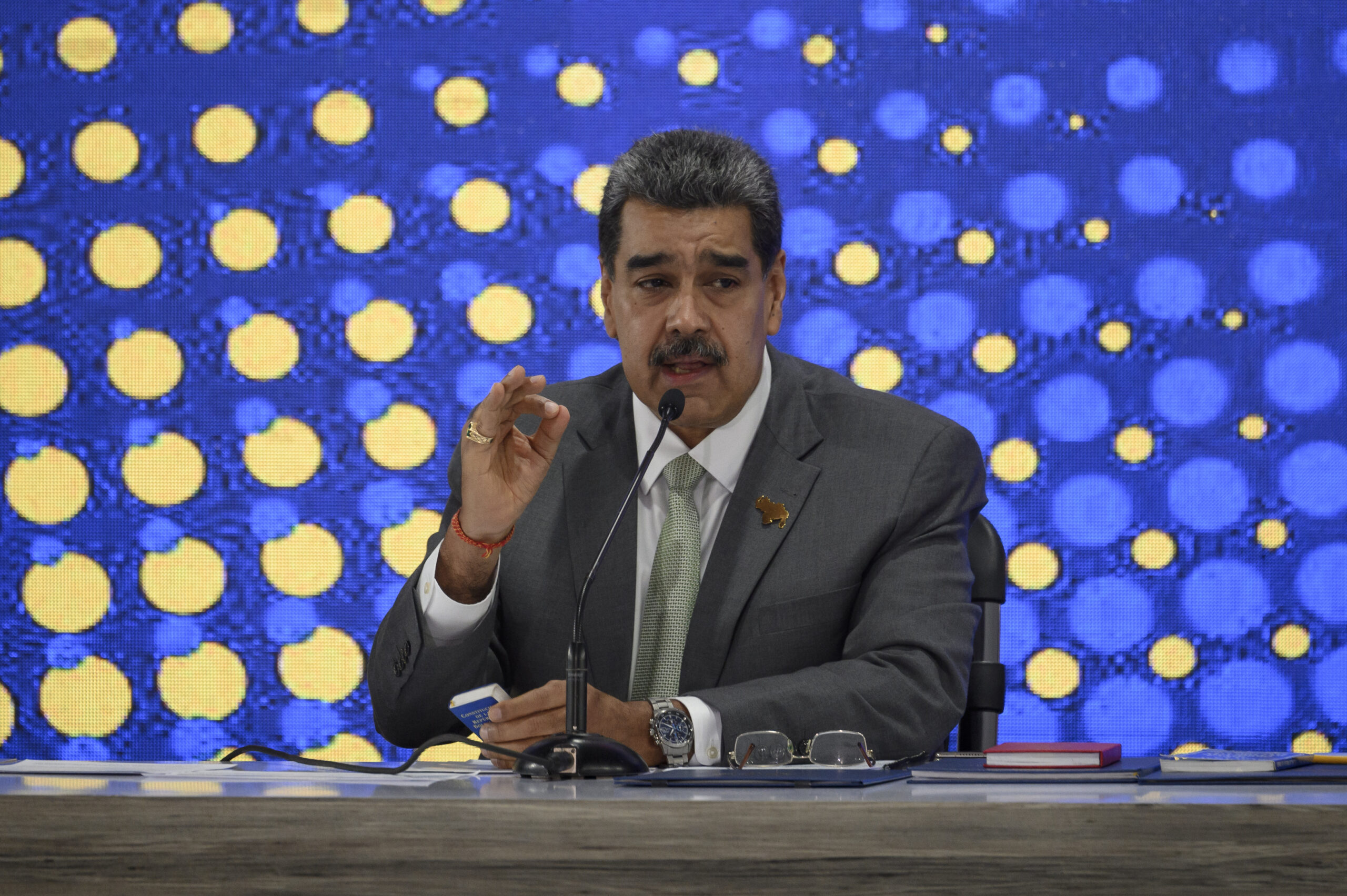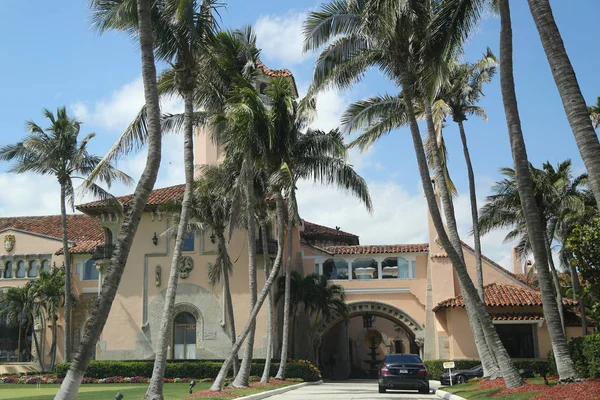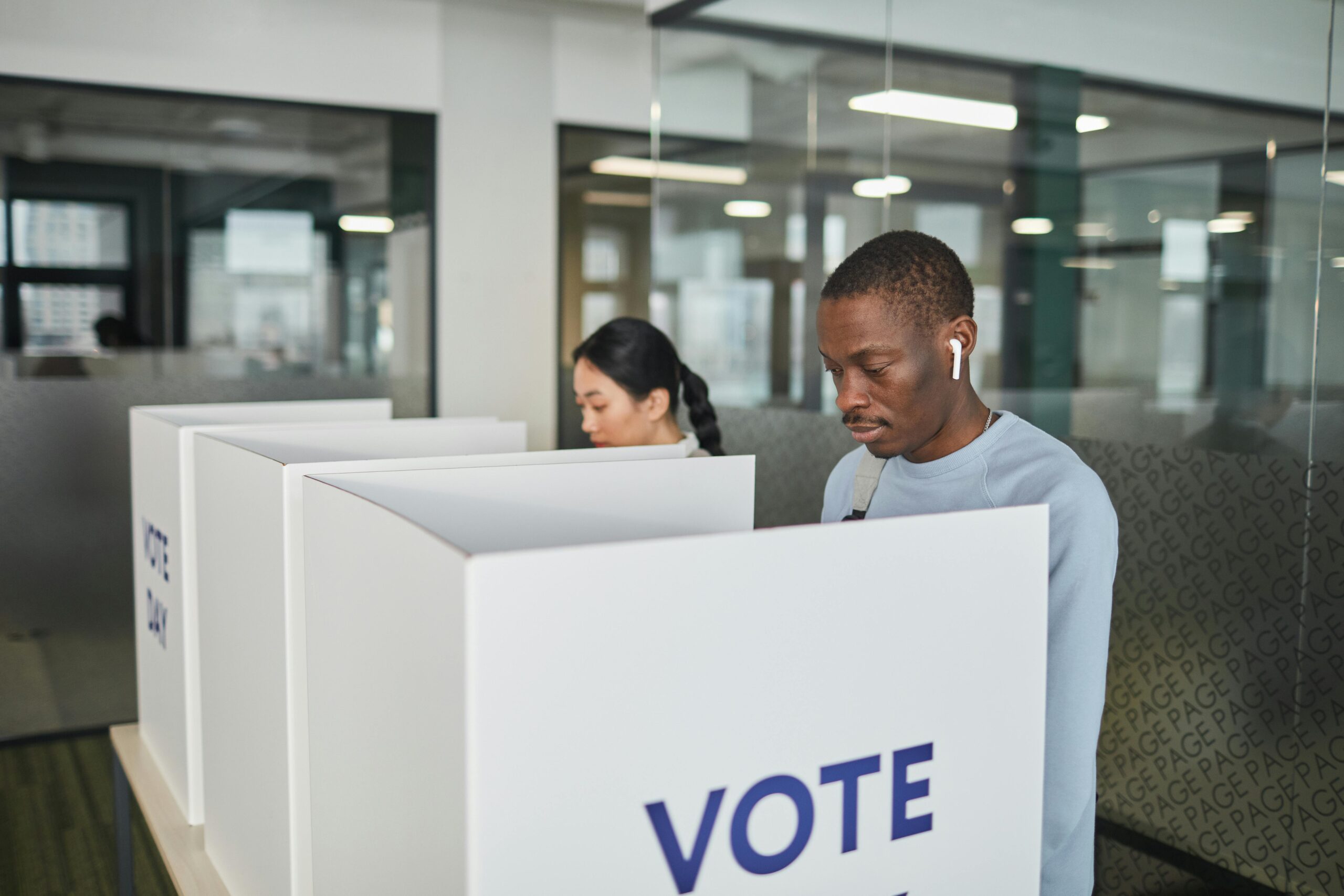Maduro’s Third Six-Year Term Spells Doom for Venezuela
Despite domestic and international opposition, the president has consolidated his hold over the socialist state.

Nicolás Maduro Moros, the president of Venezuela, was inaugurated Friday morning for his third consecutive six-year term. Despite successfully suppressing efforts by opposition parties to contest the dubious official results of the election, the event leaves the government of Venezuela almost completely isolated internationally and facing a difficult future domestically.
Maduro’s inauguration puts an end to the furiously disputed presidential election of 2024. Held in July, the election was the subject of a strong effort by the Venezuelan opposition to finally end Chavista dominance of the country. When the leader of the opposing coalition, María Corina Machado, was disqualified by courts from running for president shortly before the election, the former diplomat Edmundo Gonzáles Urrutia was tapped to run in her stead. Opposition groups and outside observers carefully monitored polling stations, due to concerns about election interference from the government, and were able to secure receipts printed out by the voting machines at many polling stations, enabling them to compile results for most of the votes cast during the election.
When the votes recorded on the receipts were tallied, the opposition announced that González had won the election with a vote of 67 percent, based on the receipts from 85 percent of polling stations. Nevertheless, the National Electoral Council of Venezuela (CNE), the official government body in charge of administering Venezuelan elections, pronounced Maduro the president-elect with a vote of 52 percent. Despite pressure from opposition parties and from international observers, however, the CNE has refused to release the complete election results, and a review of the data secured from voting machine receipts leaves little doubt that the government totals are entirely fraudulent.
In the following months, the domestic opposition mounted a sustained campaign to pressure the Venezuelan government into recognizing González as the legitimate victor of the 2024 presidential election. Protests and demonstrations within Venezuela broke out on a massive scale, but the Maduro government quickly cracked down on such activities. Thousands of protestors and their families were arrested, some were shot in police actions or paramilitary violence, and others disappeared in suspicious circumstances. María Corina Machado was forced into hiding, and Edmundo González fled the country and sought asylum in Spain after his family was threatened.
International pressure on the regime was even less effective. Most of the governments in the region, like Panama and Uruguay, were already critical of the Maduro government, and their harsh condemnations of the election made no difference. International organizations were also already critical of the country for alleged human rights abuses, and their protests were of no concern to Maduro.
In the runup to Maduro’s inauguration, the opposition revived some hopes that the government could be made to recognize the legitimate election results. Edmundo González loudly proclaimed his intention to return to the country and take his rightful place in the presidential inauguration. Returning to the continent from Spain, he conducted a tour of friendly nations in the region in an attempt to secure support for his triumphant reentry as president-elect, visiting Javier Milei in Argentina, Luis Lacalle Pou in Uruguay, José Raúl Mulino in Panama, Abinader in the Dominican Republic and Joe Biden in the U.S.
González on Thursday gathered a host of Latin American notables to his hotel in the Dominican Republic in preparation for his crusade for Caracas. María Corina Machado left hiding and stepped into the public eye for the first time in months the same day, leading a protest movement that, though much diminished, was supposed to prepare the way for González’s victorious return.
That return now seems unlikely ever to happen. After leaving the protest she was leading Thursday, Machado was intercepted by government forces and briefly detained, then released. When the inaugural ceremonies began on Friday morning, Gonzalez was nowhere to be seen, and Maduro was sworn in before his allies in Caracas without incident. There were a few brief outbreaks of popular discontent, which were quickly quieted, as Venezuelan police, military, and paramilitary forces throughout the nation were on high alert.
With his ever-tightening control over the organs of state and particularly the military, which Maduro has regularly purged throughout his previous two terms, it is unlikely that the inheritor of Hugo Chávez’s Bolivarian Revolution will be dislodged from the Palace of Miraflores. Both domestic dissent and international opposition have had little effect on Maduro’s grip on power.
The future of Venezuela looks bleak. Falling oil prices and decaying domestic infrastructure at the state-run oil company have robbed the socialist state of its principal economic prop; the sale of Venezuelan oil is no longer sufficient to fund the basic functions of government, let alone the redistributive schemes used by Chavez to win popular support. Strict state control of industry has devastated the rest of the Venezuelan economy, leaving millions destitute and forcing millions more to flee the country.
Millions more will likely follow. If Maduro cracks down on those involved with the political opposition, as he has in the past, many will become political refugees. Others will seek a more reliable subsistence, as the continuation of Venezuelan government means that no economic relief is likely to be available for the foreseeable future.
The inauguration also leaves Venezuela still more politically isolated. Even countries that were previously friendly to Maduro—such as Brazil under Lula da Silva, Colombia under Gustavo Petro, and Mexico under Andrés Manuel López Obrador and subsequently Claudia Sheinbaum—urged Maduro to release the official election results. When the CNE continuously declined to do so, relations between Venezuela and its erstwhile allies cooled; few Latin American governments were anxious to tie themselves too tightly to an increasingly obvious dictatorial regime. The only foreign head of state that attended the ceremony was Miguel Díaz-Canel, president of Cuba. Maduro may be able to obtain some favors from Russia and China for his anti-American stance, but even they have little to benefit from by increasing ties to such a dysfunctional state.
The event will have serious implications for the United States. A migration crisis will increase pressure on the American southern border; thousands of Venezuelans have already made their way to the U.S. More displacement in Latin America may exacerbate regional crises as well, increasing the possibilities for organized crime and human trafficking in Central America and Colombia in particular. And, of course, a hostile administration in Caracas presents some risks for American interests in the western hemisphere, principally by serving as a convenient base for China to extend its influence throughout the region. Confronting and negotiating with Maduro may prove to be one of the more important tasks for a Trump administration that has placed a revitalized Monroe Doctrine among the centerpieces of its foreign policy.
The post Maduro’s Third Six-Year Term Spells Doom for Venezuela appeared first on The American Conservative.

